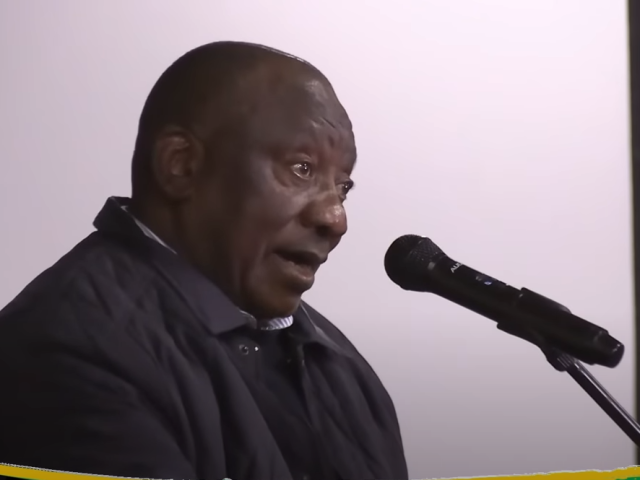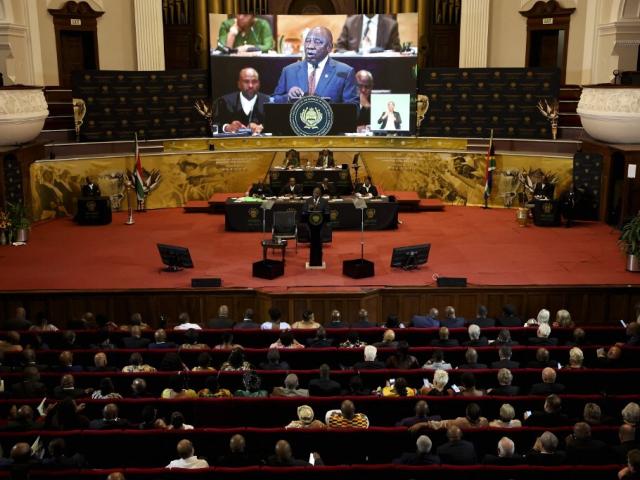-
Herman Mashaba of Action SA made two concerning claims about how often a woman is raped in the country and the number of murders daily. While the true numbers are undoubtedly high, his cannot be verified by existing data.
-
According to our calculations, Democratic Alliance leader John Steenhuisen missed a trick when he understated how many eligible South Africans were not registered to vote. He was also off the mark about the number who could have but didn’t vote in the last two general elections in the country.
-
The DA was also wrong about how many South Africans can be shown to be currently unemployed and fuzzy on the details when discussing the number of “young people” out of work.
With elections looming in 2024, South Africa’s opposition parties are in talks to form a power-sharing coalition.
The initiative includes the Democratic Alliance (DA), the Inkatha Freedom Party, ActionSA, the Freedom Front Plus, the United Independents Movement, the Spectrum National Party and the Independent South African National Civic Organisation. Other opposition parties have been invited.
At a national convention in August 2023, the pre-election agreement was named the Multi-Party Charter for South Africa. The group agreed on a common vision to “build a just, inclusive and prosperous South Africa based on opportunity, freedom and security for all its citizens”.
Briefing the media on the first day of the convention, opposition leaders made a number of claims about the state of the country. We checked six of them.
(Note: At the time of publishing, the DA had not responded to questions about the sources of its claims. We will update this when we hear back)
Highlighting some of the issues to be discussed at the convention, DA chief whip Siviwe Gwarube said that over half of South Africans were out of work.
Gwarube did not define the term “out of work”, and it doesn’t have a formal definition. The term most commonly used and measured in this context is “unemployment”.
Statistics South Africa (or Stats SA), the country’s national data agency, defines a person as unemployed if they are aged between 15 and 64, not actively employed, available for and actively seeking work, or have a job to start on a definite date in the future.
The most recent edition of Stats SA’s Quarterly Labour Force Survey (QLFS) found that 32.6% of the South African labour force was unemployed in the second quarter of 2023 (the months of April to June).
Stats SA also measures an “expanded unemployment rate”. This includes people who are unemployed and not actively seeking work, as well as “discouraged work-seekers” – people who have been put off searching for work for a number of reasons, including being unable to find jobs in their area.
This may be closer to what people think of when they hear the phrase “out of work”, but even South Africa’s expanded unemployment rate was 42.1% in the second quarter of 2023.
Gwarube’s claim that “over 50% of South Africans are out of work” is therefore incorrect.
Also on unemployment, Herman Mashaba, president of Action SA, later claimed that “44% of South Africans are unemployed today”. This too is incorrect.
The last time Stats SA recorded an expanded unemployment rate as high as 44% was in the second quarter of 2022.
Action SA spokesperson Samkelo Mgobozi conceded that Mashaba used an “outdated” figure. But the current expanded unemployment rate was still “unacceptably high”, he told Africa Check.
We also checked a claim by Gwarube that “seven out of 10 young people are without work”.
Stats SA collects data on unemployed youth aged 15 to 34. A special category known as “youth not in employment, education or training” or NEET, refers to those aged 15 to 24.
It is true that younger South Africans are more likely to be unemployed. In the second quarter of 2023, 60.7% of the population aged 15 to 24 was unemployed. For those aged 25 to 34, the figure was 39.8%.
By the expanded definition of unemployment, 70.1% of those aged 15 to 24 were considered unemployed. The rate was 49.1% for the 25 to 34 age group.
This would make for an unemployment rate of less than 70.1% for anyone officially considered “young” (aged 15 to 34). So while the claim may be accurate in the context of NEETs, it is misleading to say that seven out of 10 young people are without work.
Citing various statistics on the state of the country, Mashaba claimed that a woman was raped every 30 seconds.
We have debunked similar claims before, including that a woman is raped every 36 and 26 seconds in South Africa.
Action SA spokesperson Mgobozi did not provide a source for the claim but conceded that it was incorrect.
If accurate, this rate would amount to about 1.05 million rapes a year, more than 25 times the number reported in 2021/22 by the South African police (Saps). A total of 41,739 rapes (not broken down by gender) were reported to the Saps that year.
Of course, the figure reported to police does not reflect the true number of rapes for many reasons. According to South African thinktank the Institute for Security Studies (ISS), victims may not report a rape out of fear of not being believed, or feelings of shame, guilt and humiliation. They may also fear intimidation or retaliation from the perpetrator, among many other barriers.
Without accurate police data, the rate of under-reporting is sometimes used to calculate the “true” number of rapes (like in previous claims we have fact-checked). But even this is difficult to estimate.
As Africa Check has previously reported, a 2011 study conducted in South Africa’s Gauteng province found that only about 4% of rapes were reported to the police. But the study was not nationally representative and is now outdated.
The same is true of a 2014 study conducted in the Western Cape province, which found a reporting rate of 2%. A nationally representative study attempted to estimate the rate in 1998 and came to 15%, but this was limited to a specific age group and is even more outdated.
ISS gender specialist Romi Sigsworth previously told Africa Check that “the exact prevalence of rape in South Africa is unknown and, to a large extent, unknowable”.
While accurate statistics are important, there are other issues to consider, according to Gorata Chengeta, a sexual violence researcher who previously spoke to Africa Check about rape reporting.
“We can tackle things like harmful social attitudes about gender, the lack of access to comprehensive sex education, corruption, widespread violence, and unequal access to education, social services, and medical care,” she said.
Mashaba went on to claim that 82 people were murdered in South Africa every day. Mgobozi told Africa Check that a February 2023 article on the business news website Business Tech was the source of the figure.
The article quoted Saps statistics from the third quarter of 2022/23, which covered the period from October to December 2022. According to Saps, a total of 7,555 murders were reported during this period, which works out to an average of 82 per day, as Mashaba said.
However, there have been two quarterly crime statistics releases since this publication. Saps released crime statistics for the fourth quarter of 2022/23 in May, months before Mashaba’s address. These covered the period January to March 2023, and recorded 6,289 murders (or 70 per day).
Days after Mashaba’s speech, Saps released crime statistics for the first quarter of 2023/24, covering April to June 2023. These recorded 6,228 murders (or 68 per day).
While an average of 82 murders per day was accurate at the beginning of 2023, it is outdated. More recent statistics have been available since May.
Comparing like with like
But comparing different quarters to one another may not provide the best picture, says violent crime researcher Nechama Brodie. She leads the Wits Justice Project at the University of the Witwatersrand in Johannesburg.
For example, since the third quarter of the year includes the Christmas holidays, when there is generally more interpersonal violence, comparing the number of murders with the quarter before or after it may not give an accurate general picture, she said.
Comparing the same quarters allows us to see the trends. In this case, the third quarter of 2022/23 is better compared to the same period in 2021/22. This shows a 10% increase (from 6,859 in 2021/22 to 7,555 in 2022/23).
Urging South Africans to register to vote in the 2024 election, DA leader John Steenhuisen said there were 14 million people who did not vote in the last two elections.
South Africa’s last national election was held in 2019. The number of people who registered to vote was 26,756,649. But based on estimates of the voting age population at the time, 35.9 million people were eligible to vote. This means that 9.1 million more people could have voted but did not register.
Of the 26.7 million people who registered to vote, only 17,671,616 actually went to the polls. This is a difference of 9.08 million.
In the 2014 national election, 25,390,150 people registered to vote. But this was only 80.8% of all those eligible to vote then. This means that 4.87 million more people could have voted but did not register.
Of the 25.39 million people who registered to vote, only 18,654,771 turned up at the polls. This is a difference of 6.73 million.
The combined figure of those who did not vote is 15.81 million, so Steenhuisen missed a chance to show that the problem was bigger.
We rate his claim as understated.
Moving to current statistics, Steenhuisen said there were 13 million South Africans who were not registered to vote.
The Electoral Commission of South Africa (IEC) keeps up-to-date voter registration statistics on its website. As of 23 August 2023, 26,004,501 people were registered to vote.
How does this compare to the number of people eligible to vote?
According to Stats SA’s 2022 mid-year population estimates, the latest available, there were 43.6 million people over the age of 15 living in South Africa.
But the legal voting age in South Africa is 18. And Stats SA’s population estimates include “all people and not just South Africans who would be eligible to vote”, Diego Iturralde, executive manager in demographic analysis at Stats SA, told Africa Check.
He said Stats SA would soon provide the IEC with statistics on the voting age population by municipality, sex and age. But using an earliest possible election date of 22 May 2023 and a projection of the 2011 census estimates, controlled for citizenship, the total voting age population would be about 40,096,944, he said.
Compared to the number of voters currently registered, there is a difference of 14.1 million.
Steenhuisen’s claim is therefore understated.





Add new comment